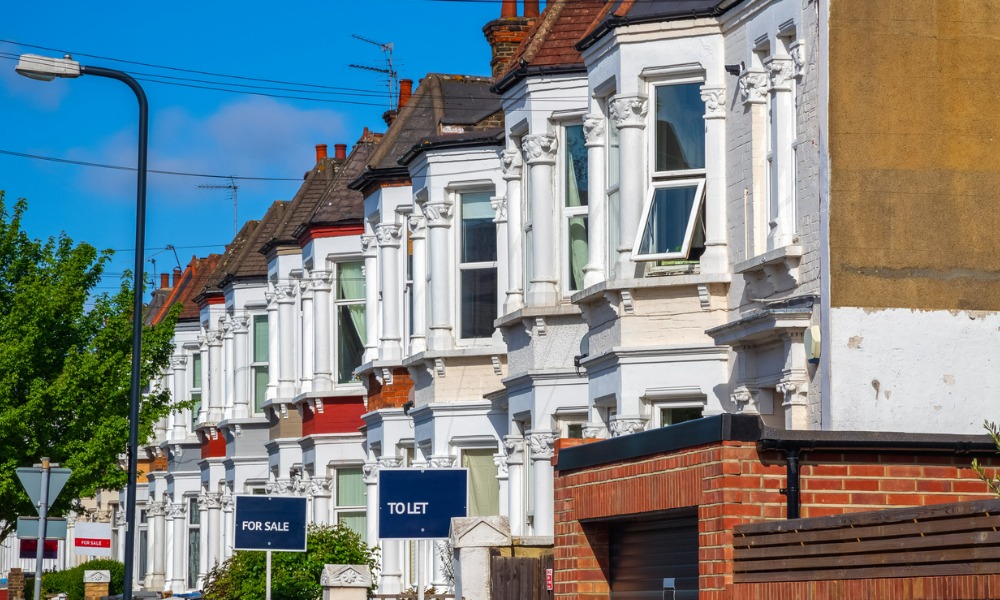Industry experts share their thoughts

In a potential move to support first-time buyers, the government is weighing a radical initiative to help them secure mortgages with only a 1% deposit.
In an article published by The Independent over the weekend, it was outlined that British Prime Minister Rishi Sunak and Chancellor Jeremy Hunt are reportedly considering the bold strategy as a means to address the challenges faced by young voters attempting to enter the property market.
The publication’s sources indicated that a Treasury-supported scheme aimed at assisting “generation rent” is among the significant proposals under discussion for inclusion in Hunt’s Spring budget.
Sunak considers radical plan for 99% mortgages to help first-time buyershttps://t.co/8NCyxsZJUY
— The Independent (@Independent) January 20, 2024
However, opinions within the industry regarding the viability of the plan appear divided.
Mark Harris, chief executive of mortgage broker SPF Private Clients, said 99% mortgages could be a good idea in the appropriate circumstances.
“With added stamp duty costs, a 99% mortgage can look identical to a 95% mortgage for previous generations,” he added. “Add in the fact that saving for a deposit while renting is practically impossible, this could be a solution.
“There are negatives to consider, of course, such as finding yourself in negative equity if house prices were to fall. This would only become relevant if you needed to move, but assuming gradual house price inflation and a repayment mortgage where you chip away at the balance each month, equity will be gradually created over time, reducing the loan-to-value.
“There are 100% mortgages available today – for example, Skipton Track Record, which uses the evidence of long-term rent payments as part of its affordability basis and assessment. Also, Barclays Springboard, albeit using equity in a guarantor’s house, so net loan-to-value is lower.”
Harris stressed that unlike 100% mortgages in the past, lenders now have more stringent assessments to perform to assess affordability, stressing and that there is less risk of borrowers overstretching themselves.
“Naysayers will no doubt focus on the fact this is a policy to increase demand for housing not supply so inevitably the effect on house prices will be upwards,” he pointed out.
Peter Stimson, head of product at fintech lender MPowered Mortgages, said 1% deposit mortgages might not be a good idea.
“It’s just another gimmick initiative that is doomed to fail,” he remarked. “With virtually no deposit, the price of these mortgages will be reflected in the risk, that is they will be very expensive!
“Instead, the government should be focused on fixing the fundamental issue, which is a lack of housing stock and affordable housing.”
For David Hannah, group chairman of property tax adviser Cornerstone Tax, reports of a 99% loan-to-value mortgage showcases the utmost desperation from politicians looking for an easy-fix to the affordability challenge faced by young voters.
“In my view, encouraging first-time buyers to take on increasingly unaffordable debts is not a viable long-term solution to Britain’s housing woes,” Hannah commented. “The move amounts to piecemeal political tinkering whereby the root causes of the current crisis remain unaddressed, the nation’s dwindling housing stock, record-high interest rates, and a stamp duty regime that refuses to shift towards current market trends must be addressed by policymakers if the government wants to get Britain buying again in 2024.”
Want to be regularly updated with mortgage news and features? Get exclusive interviews, breaking news, and industry events in your inbox – subscribe to our FREE daily newsletter. You can also follow us on Facebook, X (formerly Twitter), and LinkedIn.



